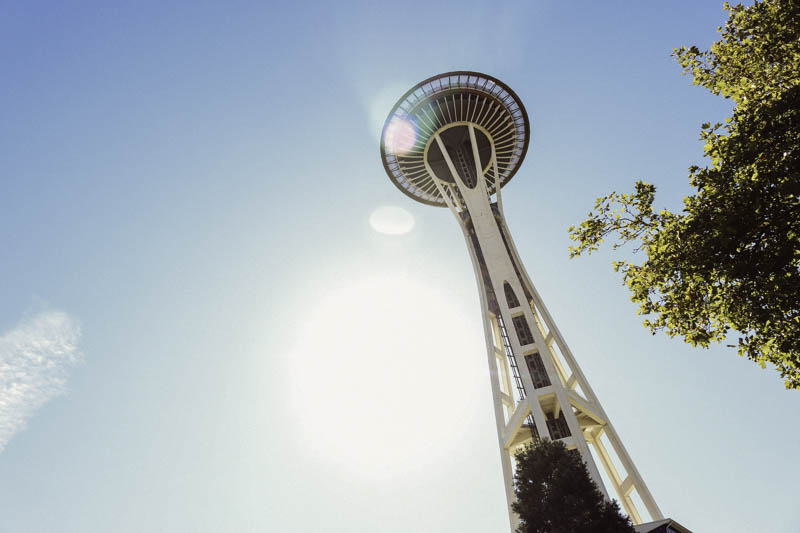Seattle is a bustling urban center rich in coffee culture and musical heritage, owing its global fame to Starbucks, Jimi Hendrix, and the grunge movement. It is also rich in evergreen trees, earning it the nickname of “Emerald City.” Today, Seattle is home to the headquarters of technology giant Amazon, which has over 45,000 employees. The allure of working in a buzzing tech capital resulted in a huge influx of people relocating to the area, and an upward tick in the housing market, which ranks as the largest in Washington State.
With more and more people looking to buy convenient and accessible homes in this verdant city, there is high demand for all types of living spaces. Though the COVID-19 pandemic caused many to move away from the bustling city in 2020, migration towards the city center picked up again in 2021. According to a 2021 report from the Downtown Seattle Association, both the population of downtown Seattle and the downtown apartment occupancy hit an all-time high again this year.

Homes sell out quickly in Seattle, with an average timeframe of one month per sale. Since 2011, Seattle home values have risen by 140%. In October 2020, the average house price rose to $775,000, which is almost twice the average cost of a single-family home in the United States. Meanwhile, interest rates are now at a historic low. This enticed more buyers to close deals on homes, leading to a shortage in supply. In October 2021, the city government changed its zoning scheme, designating “single-family zones” as “neighborhood residential zones” instead. This shift would create more housing opportunities as landowners may now build multi-family residential structures (e.g. townhouses, duplexes, and apartments) on land formerly reserved for single-family homes alone.
Given the competitive housing market in the Emerald City, residents and newcomers have one question: how much does it cost to build a house in Seattle?
The cost of a new home varies with the labor and resources needed to construct it, most of which are also factors that fluctuate in prices independently. Building a home requires a lot of different costs such as architecture and design fees, permit fees, land fees, and other custom features. With new home construction, however, most homeowners prefer building from the ground up, which also includes framing, foundation, plumbing, roofing, and flooring. All of these are what make up the soft and hard costs of building a home.
Hard Costs
Hard costs are any expense that funds the physical structure of the house, which includes the materials, landscaping, labor, and even the total building cost. Between 2020 and 2021, the median price of a new home build was $525,000. Estimates from Harrison Architects and CTA Builds indicate that a bare and simple custom home can start at $350 per square foot. Mid-value home design and construction may cost somewhere between $400 and $500, while for high-end, luxury homes, the figure can go at around $500 per square feet or more.
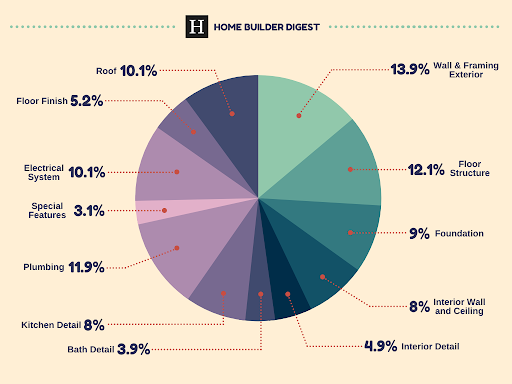
Figure 1. Typical cost breakdown of a single-family home constructed using the conventional method, according to Home Builder Digest.
Seattle caters to the unique Northwest Regional home style, which usually showcases wood-framed construction, floor-to-ceiling glass windows, and open floor plans with exposed posts and beams. Given this prevalent home style, Seattle saw a rise in lumber prices in 2020 until the first quarter of 2021, where costs have gone up to $1,711 per thousand board feet around May this year. One reason for this increase could be the influx of new homeowners looking to settle in the city. However, other than lumber, other material prices have also gone up such as steel pipes (22%), structural steel (14%), and plywood (24%). Since then, the price of framing lumber has gone down to $400 per thousand board feet to keep the market competitive, making this price decrease an ideal time to build a Seattle home. This trend matches the typical yearly housing market of the city, where it cools down around August to give way to the reopening of schools.
The Seattle weather is also something to prepare for as Washington is expected to have another La Niña winter this year, which can result in much lower temperatures. Having weather that can go anywhere between 38°F to 47°F, it is important to install heating, such as a boiler ($3,500 to $10,000) or a forced air furnace ($700 to $2000).
Accessory Dwelling Units (ADUs)
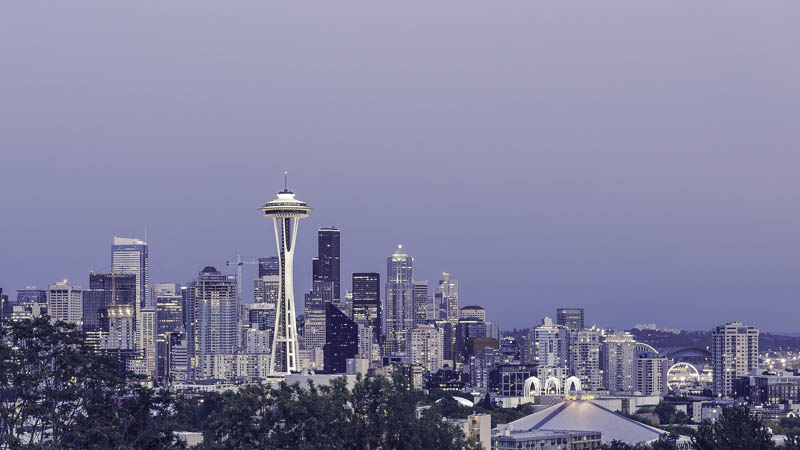
ADU is the technical term for any self-contained addition to the primary living space. It can be attached or contained within the primary residence (AADU) or completely separate or detached yet still contained within the property (DADU). These spaces generally have their own sleeping quarters and living room. What differentiates it from art studios, guest rooms, and other accessory buildings, is that it has its own kitchen sink and stove, both of which are not allowed in the mentioned spaces. DADUs, or commonly called backyard cottages, are typically more expensive than AADUs since it’s similar to creating a new home, which includes the foundation, exterior walls, and roof. Depending on the materials and design, a Seattle AADU (basement) may cost around $175,000 to $275,000, while a DADU may range from $250,000 to $550,000.
Soft Costs
Soft costs are the intangible expenses that go to and beyond the construction of the home, such as architectural design, land development fees, building permit fees, engineering fees, and other miscellaneous expenses. Seattle’s permit fees vary from project to project, but they typically cost around 1 to 2% of the construction cost.
Cost of the Land
All over the United States, land shortage can be seen, specifically for construction-ready lots. Dubbed “one of the fastest growing cities in the USA,” more people moved out of the area in 2020. The population managed to rebound this year, and according to the Downtown Seattle Association, both population and apartment occupancy for the city, specifically Downtown Seattle, has reached an all-time high. If interested, a buyer may pay around $258,023 for one lot, which is the median price for King County, although this cost includes all types of land currently for sale in the area, such as undeveloped acreage, farm land, and improved properties. This pricing is also exclusive of the land fees implemented by the city government, which will be elaborated in the next section.
Permits and Other Fees
Last October 4, the Seattle city council agreed to remove “single-family” zoning, and will instead refer to the areas as “neighborhood residential zones.” This feat is an attempt in projecting a more integrated view of the neighborhood development, which is in preparation for the 2024 comprehensive plan update. It is expected that this will lead to denser development of more housing and more mixed-use areas. The neighborhood residential zones take up almost half of the developable land in Seattle, and almost 75% of the residential areas.
All fees pertaining to construction shall be filed at the Seattle Department of Construction & Inspections (SDCI). The department issues permits for land use, construction, trade, and even conducts construction and housing-related inspections to make sure that they are in compliance with codes and standards.

Building Permit Fees covers the time needed to review and inspect the construction plans, which is about 1 to 2% of the expenses. The SDCI has a base fee and hourly rate of $231, and an hourly rate of $394 for land use review, all of which are as specified in Subtitle IX of the 2021 SDCI Fee Subtitle. Generally, the value varies per project, and as of this year, there has been a 1.0% increase in the cost. Building on sloped lots also calls for a special permit, namely an Environmentally Critical Area (ECA) exemption. Critical areas have additional fees, which includes a complex review, or the alterations that require mitigation. Details for such can be found in King County’s plan review:King County also updated their Single Family residential construction fees for 2021-2022, and the new fees for custom homes can be seen below:
Backyard Cottages (DADUs)
Following the 2019 ADU reform, Seattle launched ADUniverse – a streamlined process which offers 10 pre-approved ADU designs. Permit fees for new units start at $140, and the introduction of this system saves a homeowner about $1,500 when it comes to permit fees, and two to six weeks in waiting time for the design approval. While the designs are given easier approval, the homeowner is still responsible for zoning inspections, site preparation, and other site-specific requirements needed. In King County, application review and permit inspection fees for accessory dwellings in single family homes are as follows:
Application Review Fees
- Minimum: $2,354
- Site: $1,869
- Sprinkler: $578
Permit Inspection Fees
- Minimum: $1.27 per square feet
- Sprinkler: $1,032
Architecture and Design Fees
Architects charge for projects in different ways, depending on the project or client. The cost will depend on several factors, such as the size, scope, and complexity of the project in question. Some design projects are simple and straightforward, while others may involve extensive studies and attention to detail. Due to this variability in approach to architectural design, many architects will only provide estimated ranges of cost for the various phases of a project, but the actual bill will be based on a fixed hourly rate.
Architectural fee estimates are usually computed as a percentage of the total cost of a construction project. For full-service work, architectural fees are likely to fall within the range of 10 to 15% of the total project cost. However, this can go as low as 5% for the most basic services.
As a general guideline, architectural fees are cheaper for new construction projects, falling at 10 to 12% of total construction cost. For additions and remodels, the fees are higher, averaging at 12 to 15% of the total cost, exclusive of fees for added services. The average cost of hiring an architect in Seattle is $9,410, which is roughly 60% more than the national average cost of $5,725. ADU design fees may vary, but the pre-approved designs offered by the Seattle government are priced at $1,000 for royalties, which will go to the architectural firm.
How do the custom home building costs in Seattle compare to other nearby cities?
According to BuildZoom permits between 2020 and 2021, the average construction cost in Seattle is $588,016.42. HomeAdvisor also indicated that the national average cost of building a new home is around $285,239, which is almost half of the Seattle average. This gap isn’t just for new construction, it’s also evident in remodeling. According to the data from the 2021 Remodeling Cost vs. Value (CVV), most of Seattle’s average construction jobs cost higher than both the Pacific and National average. This includes both midscale and upscale remodeling such as bathroom addition, bath remodel, kitchen remodels, and external replacements. However, when it comes to median home prices, Seattle is still average with a home value of $760,000 as compared to the following four cities.
Kirkland
Kirkland has more people to buy homes than the actual number of homes available, making it a seller’s market. The standard value in the city is $1,023,625, which is seasonally adjusted to include only the middle tier homes. In September 2021, the median home value reached $1.1 million, with a price of $567 per square foot and a sale price of $1 million.
Bellevue
Bellevue has more buyers than homes available. The standard value in the city is $1,256,550, which is 20.3% higher than the previous year and only includes middle tier price homes. In September 2021, the median home value reached $1.2 million, with a median price of $563 per square foot and median sale price of $1.3 million.
Bainbridge
Bainbridge Island is also a seller’s market, where the standard home value is $1,135,836, and includes only the middle tier homes. In September 2021, the median home value reached $950,000. The median price per square foot was $477, and median sale price of $1.2 million. Home values have increased by 23.5% compared to the previous year.
Mercer
Similar to the previous cities, Mercer Island is also a seller’s market with more buyers than homes. Typical middle tier home value in the area lands at $1,992,847. In September 2021, median price of homes was around $2.4 million, with a per square foot listing of $666, and a sale price of $2.5 million, which makes it the most expensive city in King County.
Major Custom Home Building Cost Trends Across the Web for Seattle
The Seattle housing market is a highly competitive one. The average home sells at around 3% above the list price and takes an average of seven days to sell. With a median price of $333.29 per square foot, Seattle ranks sixth in a list of large metro areas identified by Inspection Support Network to have the most expensive homes per square foot. According to a Zillow study, that price continues to rise every year.
Based on responses found on online forums like Reddit, building a home from scratch is expensive. Most forum responders suggested buying or renting condos instead of building homes, but many Seattle residents still opted to build homes in the suburbs due to the lower risk of COVID exposure.
Harrison Architects estimates new construction cost at $350 per square foot for a bare-bones home, $400 per square foot for a mid-range home, and $500+ per square foot for highly customized homes. However, this cost estimate should be considered a mere guideline and not a rule, because this may still vary depending on the total square footage and presence of spaces that are more expensive to construct, such as kitchens and bathrooms, as opposed to more affordable “simple spaces” like bedrooms, living rooms, and dining rooms. Opting to build a home outside the city may raise construction costs by around $50,000 for sewer connection, water lines, gas or electricity hookup, and construction of driveways and walkways.
Raw material prices have skyrocketed since the second quarter of 2020, and the trend continues upwards. This was due to the temporary shutdown of factories during the height of the pandemic. Lumber and copper pipe prices were affected the most, rising by 49% and 45%, respectively. Other building materials such as PVC pipes, copper wire, plywood, conduit, steel pipes, and structural steel were also affected by the price hike. These sharp price increases have contributed to the continuously rising cost of new construction and remodeling in Seattle.
What Leading Custom Home Builders and Architects that Serve the Seattle Area Say
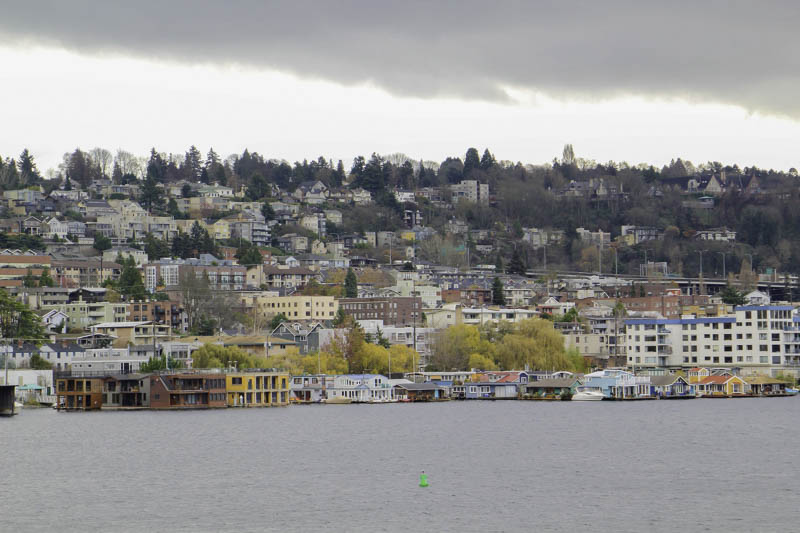
To elaborate more on the housing market, we reached out to home builders and architects that serve Seattle to obtain in-depth information regarding the current costs of residential construction.Lane Williams of Lane Williams Architects tackles the high cost trend in Seattle, where the industry is experiencing a setback of materials and labor shortage, against the high demand. Another factor that could be contributing to cost increases is the improvements and innovation in technology such as LED lighting, home automation, insulation for energy efficiency, or even aluminum-clad wood windows that decrease the need for frequent routine maintenance. For the current price per square foot of new homes, Williams stated that their lowest priced homes over the past two years were a little less than $400, which would be what she considers value-conscious with a simple two-story design. She added that the same range of design would probably be around $450 to $475 with today’s prices. As for mid-range and high-end construction, prices start at $550 to $700 and reach $1,000 per square foot depending on the home and style.
Moreover, Keith Imper, Strategic Marketing Lead of Charter Custom Homes, delved into the basics of cost management for custom home builds, where ensuring details, specifics, and contingencies as early as possible is necessary for giving an accurate price for the project. For example, a heating, ventilation and air conditioning (HVAC) system can cost anywhere between $25,000 or $100,000. Insight on the client’s lifestyle may help the contractor decide what the best HVAC system may be for the client, and how it will affect several details in the long run such as the roofing, furniture, and other finishing. Imper also stated that the Seattle market has changed so much in the past six months that the next half of the year might yield different numbers from now.
The Future of Seattle’s Residential Construction Industry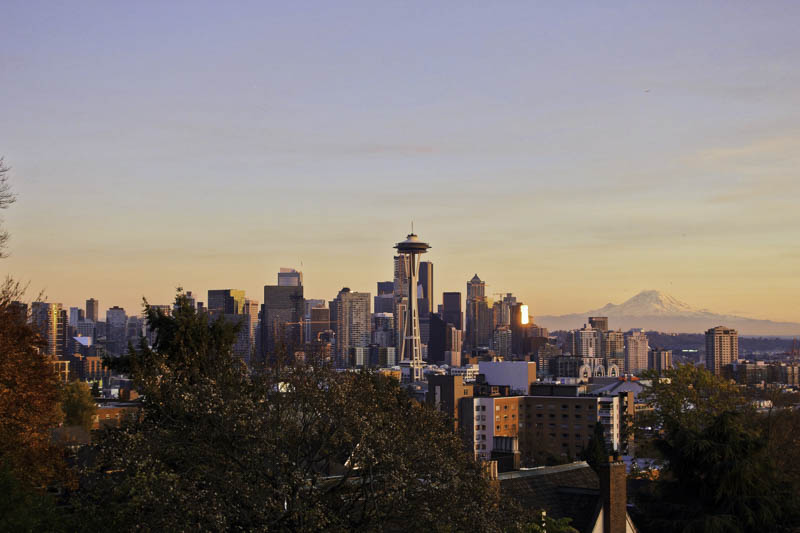 The COVID-19 pandemic brought about shortages in raw material supply and a lower employment rate, which significantly drove up building costs. While the construction business has started to pick up speed again as employment rates return to their pre-pandemic levels, material costs remain high and will continue to increase by an expected 4-6%. Backlogs in the supply and transportation of raw materials also persist, causing material shortages and difficulty meeting the demands of Seattle’s fast-paced housing market. All of these factors add up to an upward price trend.
The COVID-19 pandemic brought about shortages in raw material supply and a lower employment rate, which significantly drove up building costs. While the construction business has started to pick up speed again as employment rates return to their pre-pandemic levels, material costs remain high and will continue to increase by an expected 4-6%. Backlogs in the supply and transportation of raw materials also persist, causing material shortages and difficulty meeting the demands of Seattle’s fast-paced housing market. All of these factors add up to an upward price trend.
If President Biden’s $2 trillion plan to rebuild infrastructure and re-shape the U.S. economy pushes through, the expected increase in construction projects will further push up the demand for raw materials and lower their existing supply, resulting in higher prices on a nationwide level. According to Jones Lang LaSalle (JLL) historical data, total construction costs in the USA have been increasing yearly 3.5 to 5.5% between 2012 to 2019. The same rate of increase is expected in 2021.
Seattle home values have gone up 12.3% over the past year and are expected to rise by 13.5% more in the next year, according to a Zillow prediction. In addition, Seattle’s economy is on the rise, with more and more jobs being created. A rise in the number of homebuyers is expected to follow. In effect, this would raise the demand for homes in the area. Given the speed at which homes sell, and the current supply of raw materials used in construction, it is likely that homebuilding costs will continue to rise in the upcoming year.
Considering building a home in Seattle?
Contact us for a free consultation

